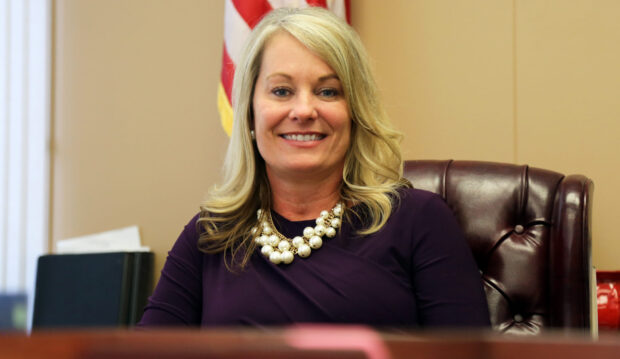The State Board of Education is looking to combat the state’s teacher shortage by opening more doors to enter the classroom under nontraditional pathways.
On Thursday, State Board members voted to support a new “mastery-based” alternative route to certification that supporters say could help districts struggling with hard-to-fill positions.
The idea is to make it easier, quicker and more efficient for professionals who have a college degree and expertise in a subject, such as chemistry, to fill teaching openings.

“I’ve been saying since I stepped into office that we are in the middle of a teacher shortage and it will take multiple sets of solutions to figure this out,” Superintendent of Public Instruction Sherri Ybarra said Thursday. “This is a great idea to open up alternative pathways. I’m looking forward to see this work and see what it does to fill some of those gaps.”
Not everyone thinks its a good idea.
During a contentious meeting last week, skeptics said a new alternative route would “water down” the requirements for teaching or make entry standards into the profession less rigorous.
“I don’t want to relax the standards, and I don’t want be the state that says we don’t need to do that much or know that much,” said Richard Osguthorpe, dean of Boise State University’s College of Education.
Supporters of the plan gave two examples of whom the new alternative routers program may apply to.
The first example is a certified agriculture teacher who is already working in an Idaho school district. The teacher in question earned an ag-sciences degree, but so far is only certified to teach ag programs. If that same school lost a biology teacher, the new alternative pathway could allow that ag teacher to teach biology and help the district avoid shutting down the program.
A second example involved professionals who are not already teachers, but experts in the professional world. Think of a chemist, with a college degree, who has relevant work experience but no teaching experience. If an Idaho school district wanted to hire that person to teach chemistry, the new alternative route could facilitate that move to the classroom without first requiring the chemist to complete several credit hours of teacher preparation courses through a college of education. Instead, that person could complete online course modules, get credit for relevant work experience and provide evidence they are ready to teach now.
“This effectively takes out the time constraint by producing online modules that can be done in parallel (to teaching) and allows that person to get full credit for what they already know, instead of marching through (teacher preparation) courses,” State Board member David Hill said.
Christina Linder, the State Board of Education’s educator effectiveness program manager, said the state will still insist on high standards for classroom teachers.
“There has been some concern that what we proposed was somehow less rigorous or that we proposed a shortcut,” Linder said. “We felt it is necessary to really show that is not at all the case. We’re simply proposing a little bit more flexibility.”
Idaho already allows teachers into the classroom through other alternative routes programs and through programs such as Teach for America or the American Board for Certification of Teacher Excellence. Last month, Idaho Education News journalist Kevin Richert reported that the number of teachers entering the classroom though alternative authorizations has nearly doubled in the past few years. In 2013-14, 2.7 percent of teachers entered the classroom through an alternative route. That number increased to 4.9 percent during the 2016-17 school year.
